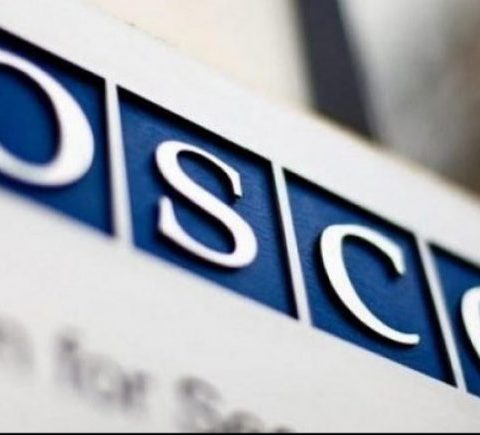By Rudina Hoxha
“In the cold war era, Korea and Albania followed different paths and accordingly had no meaningful contacts. However, since the establishment of diplomatic relations in 1991, Korea and Albania have rapidly become close friends and partners in many areas such as people-to-people exchanges, trade, development, culture, education and international fore,” said Ambassador of South Korea, Ahn Youngjip in an exclusive interview for Tirana Times.
South Korea and Albania reestablished their diplomatic relations 25 years ago.
Celebrating this marked anniversary in their bilateral ties, Tirana hosted a series of cultural events from South Korea from Nov 10-12, 2016. The Korean Embassy, which oversees Albania affairs from Greece, is showing a greater interest in consolidating the bilateral relations.
Ambassador Youngjip is optimistic that the door of opportunities is more open than ever. “Some Korean companies such as Samsung Electronics, LG Electronics, Hyundai Motor Company, and Kia Motors Corporation show strong presence in Albanian market. Some other companies are also looking for new business opportunities in diverse fields such as public projects, construction works, e-ticketing system and cosmetics,” he said, adding “Given the advantages and potentials of Albanian economy, I believe that more and more Korean companies will have interests in doing business in Albania.”
First time in Albania? What are your first impressions about our country?
This is my second visit to Tirana. This January, I came to Tirana to present my credential to H.E. Bujar Nishani, President of the Republic of Albania. Before my first visit, my knowledge on Albania was superficial built on old books or journals I read in the past: Albania belonged to the communist block and pursued the purest form of communism. Through my visit, I realized that since the end of the Cold War, Albania has been transformed into a democratic country with a membership of NATO and a status of EU member candidate. Moreover, Albania is a rapidly emerging and developing economy with a lot of potentials.
Albania and South Korea celebrate 25th anniversary of their diplomatic relations. How have these relations evolved over these years in your view?
In the cold war era, Korea and Albania followed different paths and accordingly had no meaningful contacts. However, since the establishment of diplomatic relations in 1991, Korea and Albania have rapidly become close friends and partners in many areas such as people-to-people exchanges, trade, development, culture, education and international fore.
For example, Foreign Ministers of the two countries had a constructive discussion to enhance the bilateral relations between our two countries in New York last year. This year alone, the Korean government invited 10 Albanian government officers for various training courses such as intellectual property system, judicial justice, e-government and others. Furthermore, the Korean government officers and experts will visit Tirana to hold an ICT/e-Government workshop on 25 November this year in close cooperation with the Albanian Ministry of Innovation and Public Administration.
What are your thoughts about giving a push to the bilateral relations between Albania and South Korea? What are the expected outcomes from this cooperation? From now on into the future, where do you want to see our two countries go?
There will be more opportunities to enhance trade and investment between our two countries. Albania is located in the Western Balkans and would be a gateway to EU. It has a large reserve of decent human resources and labor competitiveness comparing to other neighboring European countries. I believe that if it joins the EU in the near future, Albania will become more attractive investment destination.
Some Korean companies such as Samsung Electronics, LG Electronics, Hyundai Motor Company, and Kia Motors Corporation show strong presence in Albanian market. Some other companies are also looking for new business opportunities in diverse fields such as public projects, construction works, e-ticketing system and cosmetics. Given the advantages and potentials of Albanian economy, I believe that more and more Korean companies will have interests in doing business in Albania.
As you may know, the Republic of Korea, the 12th largest economy in the world achieved rapid economic development and mature democracy for a quite short period of time and wishes to share such experience with Albania through close cooperation. The Korean government regards Albania as one of important partners in development cooperation. As I mentioned earlier, the KOICA (Korean International Cooperation Agency) invited around 10 Albanian government officers for various training programs to share our experience of development every year. Also the cooperation in the field of ICT and e-Government which Korea has competitive edges will be more expanded.
It is also important to strengthen cultural exchanges and mutual understanding among people of the two countries. In this regard, our embassy organized the Korean Week in Albania which includes various pubic cultural events such as Korean Film Night on 11 November, Ensemble Korea Concert on 12 November and Ambassador’s Cup Taekwondo Championship on 13 November to commemorate the 25th Anniversary of the diplomatic relations between our two countries. Last night, many Albanian young people came to the Korean Film Night and made very positive comments on Korean movies. I hope that such events will help mutual understanding and cultural exchanges among youths. Our embassy would like to host such events on a regular basis.
Human exchanges seem vital to progress our relations. No visa to visit each other. In what way, can we push ahead in this direction?
People-to-people exchanges play important roles in deepening the relations between Albania and Korea. On the basis of the principle of reciprocity, Albanian tourists can visit Korea for 30 days without visa and vice versa.
Recently, more and more Korean tourists visit Balkan countries such as Greece and Croatia. The increasing number of Korean tourists come Albania, too. Last year around 6,000 Koreans visited Albania. I expect more and more vibrant people-to-people exchanges between the two countries.
Availing this opportunity, I would like to introduce a full scholarship program of my government for the post graduate students of foreign countries. This program provides all relevant costs (tuition fees, air tickets, living expenses and etc.) for 3 to 5 years to one Albanian student every year. As Korean universities provide very good quality academic courses in diverse fields, I would like to recommend many Albanian students to pay more attention to this program whose information is available at the following website: (https://www.studyinkorea.go.kr/en/main.do)
South Korean society has a zero tolerance to drugs. How did it achieve it? What approach did you follow?
Korea is considered as a drug-free country. In Korea, there were around 10,000 narcotics-related convicts as of last year. In the past drug abuse had been seen as largely confined to the criminals, but recently some numbers of salaried workers, housewives, students and farmers become drug users.
Facing drug abuse challenges, the Korean government enforces very strict and tough measures to address these cases. For example, the Act on the Control of Narcotics stipulates the punishment of habitual sellers of banned substances up to death penalty, while simple smuggling itself can carry life imprisonment.
Another reason why Korea is a drug-free country has been the tradition of the Korean society to strongly reject drug dealers and suppliers. The Korean society has firmly rejected any suggestion of liberalization of any kinds of substances.
I would like to consider the possibility to share our experiences in tackling the problem of drug abuse with Albania.










